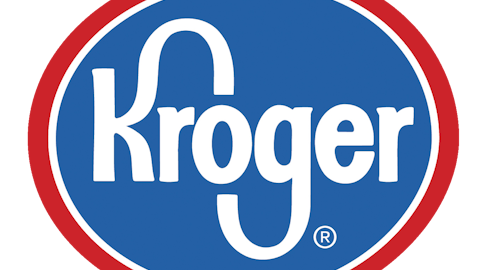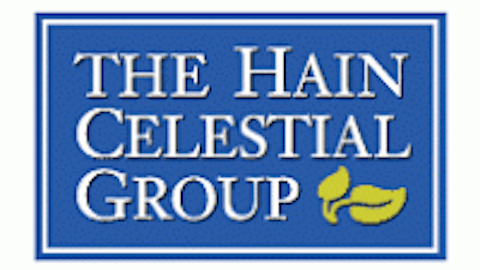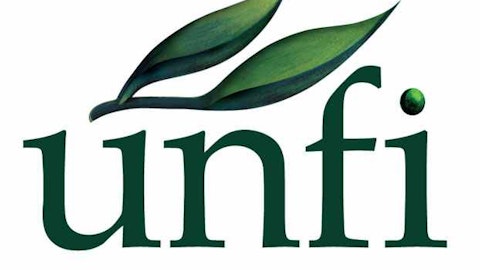If investing were as simple as looking at a price-to-earnings ratio, we would all make great investments. But too often investors are surprised when a company reports substantially lower profits than originally forecast. This is usually the result of evaluating an investment based on its earnings or cash flow instead of evaluating the quality of those earnings.
This article breaks down the quality of three grocery stores’ earnings — Whole Foods Market, Inc. (NASDAQ:WFM), The Kroger Co. (NYSE:KR), and Safeway Inc. (NYSE:SWY) — so that investors can determine which company is most likely to retain and grow earnings and which may surprise with lower earnings in the future.
Earnings breakdown
Profit at a grocery store depends on the interaction of three key variables: margin, inventory turnover, and leverage. Usually, a grocery store will focus on selling either high-margin products with low inventory turnover or low-margin products with high inventory turnover. However, stores that combine high margins with high turnover earn exceptional profits.
Whole Foods Market, Inc. (NASDAQ:WFM) has the highest gross margin, followed by Safeway Inc. (NYSE:SWY) and The Kroger Co. (NYSE:KR), respectively. But profit margins are only meaningful when combined with inventory turnover. If a grocery store sells product at a high margin but is unable to sell items quickly, it will generate a low return on equity. So a low-margin grocery store can be better than a high-margin store if it sells its inventory quickly enough to make up for the low margin.

However, in this exceptional case, Whole Foods Market, Inc. (NASDAQ:WFM) has a high gross margin and it sells its inventory more quickly than the other chains.

As a result, one might expect Whole Foods Market, Inc. (NASDAQ:WFM) to generate a much higher return on equity than The Kroger Co. (NYSE:KR) and Safeway Inc. (NYSE:SWY), but it does not. Instead, Kroger maintains a significant lead in return on equity, while Whole Foods is much closer to Safeway.

Quality of earnings
Some number crunchers believe if you know a company’s return on equity and its price-to-book ratio, you can calculate an expected return for the stock.
1). The Kroger Co. (NYSE:KR) trades at 4.3 times book value and has earned a 17.5% return on equity over the last 10 years. If you divide return on equity into the price-to-book ratio, you get an expected return of 4.1%.
2). Whole Foods Market, Inc. (NASDAQ:WFM) trades at 5.4 times book and has earned a 12.36% return on equity over the last 10 years. The 12.36% divided by 5.4 equals 2.3% expected return.
3). Safeway Inc. (NYSE:SWY) trades at just two times book and has earned a near 9% return on equity over the last 10 years. This yields an expected return of 4.5%.
So, if each company averages the same return on equity over the next decade as it did over the last, then Safeway Inc. (NYSE:SWY) and The Kroger Co. (NYSE:KR) offer a much higher return than Whole Foods. However, that probably will not turn out to be true.
Kroger’s superior return on equity is due entirely to financial leverage. If each company operated with the same level of debt, Whole Foods would have a much higher return on equity than either of the other two companies because it scores higher on the business-related metrics: margin and turnover. Its business is in better shape than its competitors, but its capital structure is less aggressive.

Kroger has steady earnings and decent growth prospects, which enables it to carry a higher debt load than companies that have less certain futures. Safeway, too, is in a better position than most companies to shoulder a few billion in debt. But neither is nearly as profitable as Whole Foods.
It may be tempting to hitch your wagon to a high return on equity company like Kroger, but consider that you could “manufacture” the same leverage by buying Whole Foods on margin or leveraging with long-dated call options. In this sense, you the stockholder can increase Whole Foods’ leverage even though the company is unwilling.
Bottom line
Simply looking at a company’s bottom line is not good enough. Investors need to dig into a company’s financial statements to figure out the true sources of earnings. Kroger and Safeway distort returns via leverage, while Whole Foods derives high-quality earnings from its operations. All else equal, long-term investors may want to consider a high-quality company like Whole Foods.
The article Why Earnings Quality Matters originally appeared on Fool.com and is written by Ted Cooper.
Ted Cooper has no position in any stocks mentioned. The Motley Fool recommends Whole Foods Market. The Motley Fool owns shares of Whole Foods Market.
Copyright © 1995 – 2013 The Motley Fool, LLC. All rights reserved. The Motley Fool has a disclosure policy.





